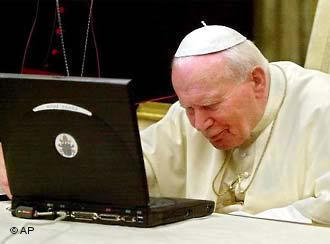2
2Cosmic2Charlie
Guest
Some structures at the Vatican have changed. It will be interesting over the next two decades to watch one thing. Vatican II called for more collegiality and synodality with the bishops of the world.
Accomplishing this has been regulated various degrees of importance over the years. But it is really moving to the forefront as some ecumenical discussions with our Eastern Orthodox brothers and sisters require a focus on the role of bishops.
That and some other things has moved it to the forefront recently. This potentially has some very profound effects of the set up of the Curia and the current dicastery systems. And may bring to a head some subtle issues between the Bishops and the Curial structure.
Davey, buddy, one more time like I four years old......
Upvote
0


 )
)